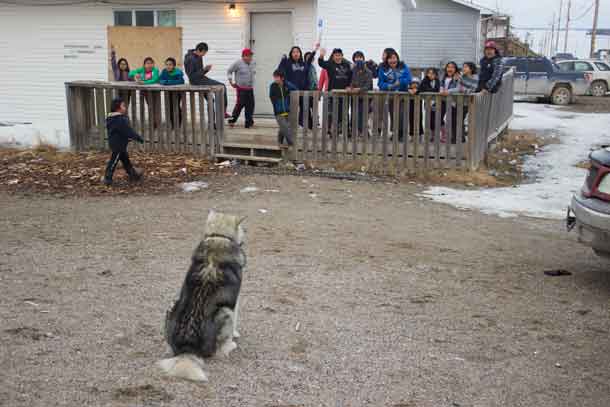OTTAWA – During debate on Bill C-7, An Act to amend the Criminal Code (medical assistance in dying), Timmins James Bay MP Charlie Angus raised the issue of the evacuation of Neskantaga First Nation in Northern Ontario.
Here is what MP Angus said:
I have learned that in Treaty No. 9 tonight families in Neskantaga First Nation are being evacuated because they have no access to water. For an Oji-Cree community in the middle of a pandemic to be willing to be flown out to an urban centre shows how severe the situation in Neskantaga is. I think every member in every party will understand the importance of bringing this forward.
One of the beautiful things we have said during the pandemic in Canada is that we are all in this together, but we are not, not in Canada. We have never all been together, not when it comes to the poverty, the casual degradation that indigenous people suffer and the systemic negligence of the most basic rights to life and dignity that Canadians take for granted as part of how this country is run. We cannot find a community that has suffered more than Neskantaga. For 25-plus years they have lived with unsafe water. That is a second generation growing up with improper water.
What does that mean? I remember meeting a beautiful young girl from Treaty No. 9. She had this incredible long, thick hair and she said she did not like to take a shower because it gave her blisters. That is what we put young people through in communities like Neskantaga. At age 13 or 14, they have to leave home because the federal government will not bother to give them a school. They have to go to a foreign culture in Thunder Bay. We know of the horrific treatment and abuse that Indigenous children have suffered in Thunder Bay, the deaths of children in the rivers and the racist attacks, yet they have to leave their homes.
We are talking about something as profound as medical assistance in dying. However, when one has had to go to a hotel room in Thunder Bay to say sorry because a beautiful young girl from Neskantaga gave up hope at age 14, we could say this nation does a lot of work to assist in the dying and hopelessness. Tonight, in Neskantaga, after 25 years of not having water, where the schools cannot be opened because they cannot get water to the schools. They have had to shut the water system down. It is winter there and elders are going to the river and getting water in buckets.
Yes, this is Canada in 2020. Therefore, when I hear people say that we are all in this together, we could say it more clearly by saying we are all in this together, except when it comes to Indigenous people, because they are at the back of the line again and again. I am not saying this from a partisan point of view. This was the primary program. Neskantaga was going to be fixed. We were told that by the Prime Minister. The previous prime minister put enormous amounts of money into water, yet the government continues to refuse to put in place the basic infrastructure that will support safe communities: the sewage lifts, the water pipes, the proper water treatment centres.
I am asking my colleagues tonight, in light of the crisis in Neskantaga and the risks people are taking by being flown out in the middle of a pandemic, to say we have to make the guarantee of access to clean water a fundamental human right. It has to be done, and it has to be done now. We cannot have any more nice words. We have all the beautiful words that come from the government, yet there are people who cannot even live in their own community because they do not have water. I am asking my colleagues to work with us to guarantee that the people in Neskantaga will be able to go home to safety, decency and water.
The issue of medical assistance in dying is an important conversation for us to have in the House. The last time we had this conversation, we were under the gun because it was a court decision that pushed the federal government to act. I had a number of concerns about the previous legislation. We knew it was not going to withstand a court challenge, yet the government went ahead with it. Now we have to come back and do it again. We need to work together because we have some fundamental principles that we have to protect in terms of how this moves forward.
I worked on a national palliative care strategy across the country before the last election. The one thing I have learned, and I saw this with my beautiful sister who died so young, is that the will to live is incredibly strong. People deal with an incredible amount of suffering, and they have the will to have family and have support. The right to die in dignity is a fundamental human right. Part of that is making sure we have a proper medical system in place to give people this support, so we have to have the provisions in place with this legislation.
Nobody’s claim of dealing with someone who is dying is more precious than anyone else’s. In our lives, it is the most intimate thing we can be involved in, and those deaths can actually be good deaths, deaths of dignity and of hope, where families are together. The day my sister died, as my mom said the rosary I sang Danny Boy for her because that is how we go out in our culture. It was terrible to see my sister go, but we came together and it was beautiful.
There are deaths that do not have dignity, and deaths of suffering. It is incumbent upon the House to make sure that the legislation in place meets a number of steps in the right to dignity, but also that it makes sure that people who are making this choice are not doing it because they feel they have been neglected or they are in a substandard seniors home, as we have seen with so many of our seniors in Quebec and Ontario who died in the pandemic. People must actually have dignity, and if they are in a home, there must be support for them so that they do not have to make that choice.
I will agree with my Conservative colleagues and all the people I have talked to in all the work I have done with palliative care, that if that choice has to be made, it is one that people do not want to make. People want to go out in a way that allows them as much time as possible. However, when that decision is made, as it is a right upheld in the courts, we have to make sure that the provisions are there to allow it to be done properly, to allow it to be done so that people are of a mind that they understand what they are doing and that they can do this in a way that meets the test of a caring society.
To that end, we have seen a staggering number of our elders die without dignity in this pandemic. It has exposed the fact that we do not put investments into care for our elders and they have suffered needlessly. That we had to send in the army to keep people from dying is a fundamental failing of our system for seniors and their health.
Of course, it is not just seniors who have to make this decision. My sister died much too young. Her husband died at 42, and he was one of the greatest people I have ever met. People die at different ages, and some of those deaths are very difficult.
I am very pleased to say that we will support the bill being sent to committee because it is at committee where we will hear witness testimony. We need to hear from the experts. We need to have a conversation and start to make sure that in the legislation, which we are compelled to bring forward because of the Quebec superior court decision, we meet the tests of the court and we meet the tests of dignity.
Again, I do not believe this needs to be a partisan issue, where a party is going to be on one side or the other. We have to put first the rights of the individual and their dignity, and the support for their family, because death should never be a lonely act. Death has to be part of family and community, and when it is, it can actually be a moment of real grace and learning.
The New Democrats are supporting the motion to send the bill to committee to be studied. We want to make sure that we get it right this time so that we do not have to change it for the next court decision.






